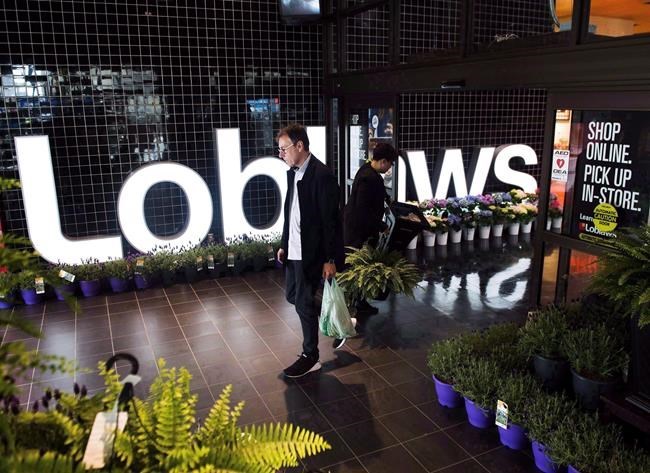As the month-long boycott of Loblaw-owned stores wears on, small independent food retailersand alternative grocery options say they’re seeing a boost in traffic and sales.
At Forage Market in Edmonton, sales rose 57 per cent during the first half of May, compared with the same period a month before.
“It's just awesome that people are actually putting thought behind where their food comes from,” said business manager Courtney Hanak.
Forage Market is like an online farmers market: it hosts local vendors selling meat, produce and more, and warehouses their products so customers receive everything they order in one shipment.
The boost in sales could help Forage act on its plans to expand to Calgary sooner, said Hanak.
She hopes that shoppers’ interest in buying from local and smaller companies continues beyond May.
“Is this just going to be something that’s too good to be true? Maybe we're just having a really good few weeks, and then it'll go back.”
After a Reddit group created to complain about Loblaw and the other major grocers gained thousands of members, talk of a boycott started to gain tractionearlier this year as consumers grew increasingly frustrated with high food prices and industry concentration. The organizers planned a boycott of all Loblaw-owned stores in May.
Loblaw chairman Galen Weston, as well as the company's chief executive Per Bank, pushed back on what they called “misguided criticism” at the company’s annual meeting May 2.
Loblaw has said it's not responsible for food inflation, and that it has been trying to mitigate rising prices by pushing back on price increase requests from suppliers.
Last week, the grocer said it's ready to sign on to a voluntary grocery code of conduct, an agreement meant to level the playing field for suppliers and smaller retailers.
Some of the food retailers seeing a boost from the boycott as shoppers look for local options are grocery co-operatives, an alternative model where the store is owned by members — in many cases, by customers.
Steep Hill Food Co-op in Saskatoon has seen an uptick in membership this month, which has helped the organization in a big way.
The area’s main grocery store closed down two years ago and in recent months, the co-op has been expanding its wares to include more conventional fare alongside the fair-trade and organic products it’s known for, manager Amielle Christopherson said.
“We have started pivoting a bit to ... keep our doors open,” she said, “and to be doing so by meeting the needs of the people in this neighbourhood.”
That pivot had already helped increase membership, said Christopherson, but in the last week of April, growth really ramped up.
“We’re selling two or three memberships a day,” she said. “And it was not like that before.”
Christopherson thinks joining a co-op can help people gain a much-needed sense of community.
“Especially around food, it’s so central to our lives,” she said. “And so those two things meld really well together.”
Karma Co-op in Toronto also saw a surge in membership after the boycott began. The co-op said in a May 10 press release that the organization had already seen new members joining in record numbers, with month-over-month growth of more than 50 per cent, making 2024 the co-op’s biggest year for recruitment.
In the past several years, apps and websites offering new models for buying groceries have popped up. Those companies are also seeing customers increasingly showing interest.
Odd Bunch is one of those. The company sends customers boxes of produce and fruit deemed not good-looking enough for retail stores, saving shoppers money while also avoiding food waste, said CEO and founder Divyansh Ojha: “It really is a win-win situation.”
The service started in London, Ont., and expanded rapidly across the province.
In May, sign-ups to Odd Bunch have been “above and beyond” normal numbers, said Ojha — between 60 to 70 per cent higher traffic and conversions in the first week of May compared with a year earlier.
“People are at the very least wanting to try out an alternative,” he said.
But it’s important that the company finds a way to sustain that interest past May, he added.
Tre’dish, another grocery delivery service, sells groceries directly from producers toconsumers. Its boxes offer up to 30 per cent average savings compared with a traditional grocer, said CEO Peter Hwang, thanks to the model’s ability to cut down on supply chain costs.
After launching its direct-to-consumer service in Mississauga and Hamilton in early March, the platform has seen significant week-over-week growth, said Hwang. Tre'dish expanded into Toronto just a couple of weeks before the Loblaw boycott began.
“The timing was just really good for us to launch in Toronto,” said Hwang.
Tre'dish has seen its subscriber base grow by 186 per cent since the Toronto launch in April.
Hwang thinks consumers are more interested in alternative models for grocery shopping as their frustrations over prices, transparency and sustainability grow.
“It's a very different model that ... I think is very much needed,” said Hwang.
“Hence the reason why I think we're seeing the uptake and interest that we're seeing.”
This report by The Canadian Press was first published May 21, 2024.
Rosa Saba, The Canadian Press




